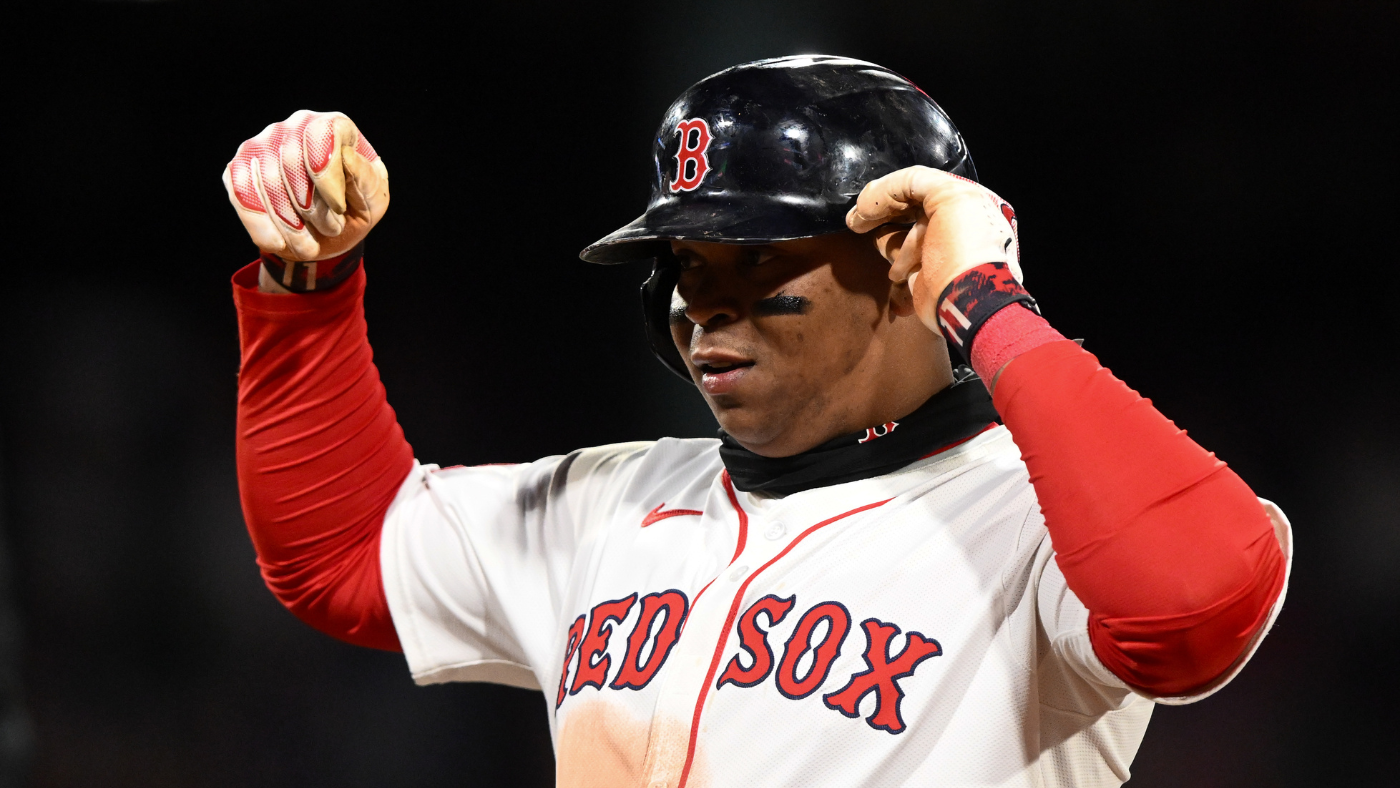
To state the plainly obvious, it’s far too soon to pass judgment on the blockbuster trade that sent Rafael Devers from the Boston Red Sox to the San Francisco Giants in a five-player stunner. Given the young players involved, it’s probably going to be years before we can fully appraise this particular swap. The at-first-blush returns, though, are not kind toward Boston.
That’s what happens when you trade one of MLB’s best hitters who’s still in his prime, no matter how icy the player-club relationship may be. One of the truest truisms in baseball is that the team that acquires the star almost always wins the trade. In this instance, it’s the Red Sox who are parting with the star.
The very real possibility that this trade will go poorly for Boston raises the general topic of “Red Sox disaster trades,” of which there have been an abundance. Let’s now briefly revisit those to get some kind of idea where the Devers trade might wind up slotting should worst-case scenarios from the Red Sox standpoint come to pass. Let’s have a look at the Stinkiest Five in chronological order:
Five worst trades in Red Sox history
April 9, 1916: Red Sox trade Tris Speaker to Cleveland for Sam Jones, Fred Thomas, and $55,000
The trade of Speaker, one of the sport’s inner-circle greats, came after the star center fielder refused to sign his contract for 1916, one that saw his salary slashed from $18,000 to $9,000. After Speaker held out in the spring, Red Sox president Joseph Lannin sent him to Cleveland mere months after Speaker and another future Sox trade baiter named Babe Ruth ferried the squad to a World Series triumph over the Phillies. In the coming years, Speaker went on to put up a WAR of 74.9 for Cleveland compared to a pre-trade WAR of 55.8 with Boston, thus establishing him as one of the most valuable players in baseball history. Thomas was a non-entity, and Jones had exactly one notable season for the Red Sox after the trade.
Rafael Devers trade: Winners and losers, including the present-day Giants, the future Red Sox and Gerrit Cole
Mike Axisa

Dec. 16, 1919: Red Sox trade Babe Ruth to Yankees for $100,000 (across four payments, with interest)
This is not just the worst trade in Red Sox history, it’s the worst trade in baseball history by a cavernous margin. It’s a trade that bent the arc of baseball history — one that enriched a rival — and worse still it was perpetrated out of miserliness. Ruth went on to establish the Yankees as a dynasty and the flagship franchise in the sport, and along the way he killed off the Deadball Era and turned baseball into a power sport. That’s a dynamic that still prevails today, more than a century later. The Red Sox in 1919 got a glimpse of what Ruth, primarily a frontline lefty starting pitcher up until that point, would become. That year he hit an MLB-record 29 home runs in 432 at-bats and had an OPS+ of 217. Even knowing what Ruth was capable of as a hitter, they still pawned him off. The Red Sox won the World Series with Ruth in 1918 but didn’t win their next until 2004.
July 29, 1988: Red Sox trade Curt Schilling and Brady Anderson to Orioles for Mike Boddicker
The veteran Boddicker was a useful addition across his three seasons in Boston at a time when the Sox were contending and in need of a rotation known quantity. The cost, though, turned out to be immense. A 21-year-old minor-leaguer at the time, Schilling went on to win 216 games; top 80 WAR for his career; and strike out more than 3,000 batters. He did of course make a triumphant return to Boston and was one of the heroes of the 2004 World Series run, but that doesn’t make up for all the years he could’ve been in a Red Sox uni. As for Anderson, he went to amass a WAR of 34.9 in 14 seasons with Baltimore.
Aug. 30, 1990: Red Sox trade Jeff Bagwell to Astros for Larry Andersen
The veteran righty reliever Andersen was excellent for the Sox down the stretch in ’90, but suffice it to say his handful of innings weren’t remotely worth the cost of Bagwell. The New England native, traded as a 22-year-old prospect, became a franchise legend in Houston and a Hall of Famer in Cooperstown. Over his 15 seasons with the Astros, Bagwell had a 79.9 WAR with 449 home runs; more than 1,500 runs scored; and more than 1,500 RBI. Along the way, he earned four All-Star selections and an MVP award.
Feb. 10, 2020: Red Sox trade Mookie Betts and David Price to Dodgers Jeter Downs, Alex Verdugo, and Connor Wong
Betts was in line to be the greatest homegrown Red Sox player since at least Wade Boggs and quite possibly since Carl Yasztrzemski. Instead, he’s now a two-time World Series champ with the Dodgers and will go into the Hall of Fame quite possibly in a Dodger cap. It was a calamity of a deal forced on the club by ownership because they weren’t willing to make a serious contract offer to Betts. It was nothing short of baseball malpractice on the part of John Henry, and that’s before you consider that Downs, the prize of the Boston return, played all of 14 games for them.
Will the Devers trade become the latest Red Sox maneuver to be looked back upon by the team and its partisans with a sense of searing regret? Giants fans are certainly hoping that’s the case, and they have a lot of history on their side in this one.
This news was originally published on this post .






Be the first to leave a comment